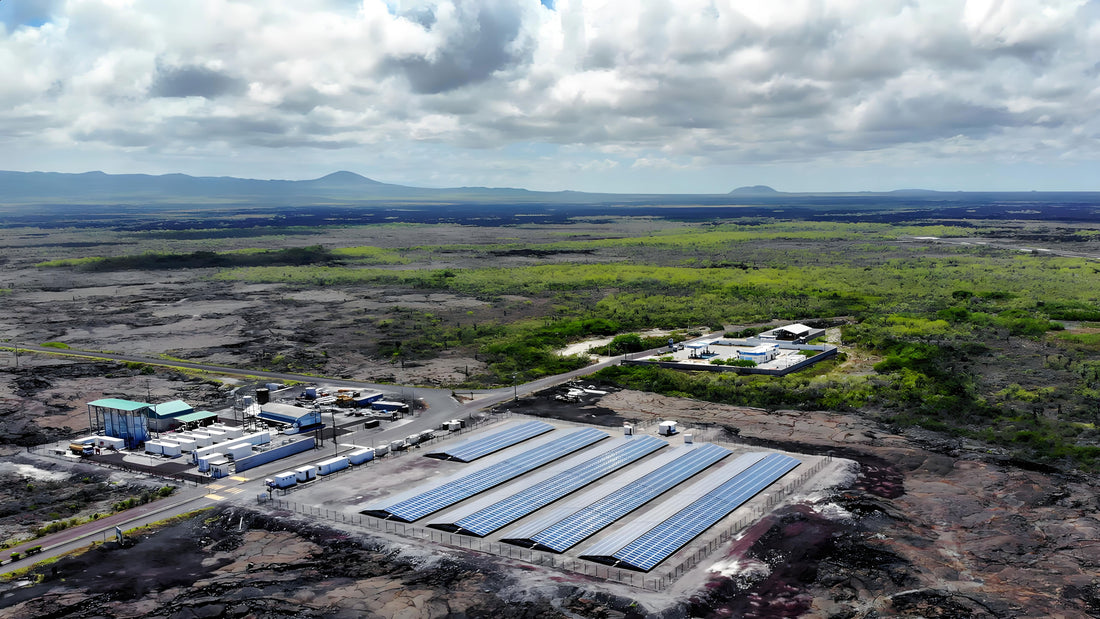
HOH Company and International Energy Group Collaboration on Energy Solutions for UNESCO World Heritage Sites
分享
Executive Summary:
Introduction Founded in 2011 and headquartered in China, HOH Emergency New Energy Storage System One-Stop Supply Co., Ltd. (hereinafter referred to as "HOH") is an innovative supply company focused on providing safe, efficient and intelligent emergency green new energy storage systems to global customers, has formed a strategic partnership with an international energy group to tackle energy supply challenges on a UNESCO World Heritage island. The island's energy grid is heavily reliant on diesel generators, which contribute to environmental risks and carbon emissions, while also presenting challenges in terms of reliability, energy availability, and quality. This collaboration is focused on deploying an integrated energy solution designed to enhance the grid's availability to 99%, while addressing the critical need for environmental sustainability and energy resilience.

Key Objectives
Reduce environmental risks associated with the extensive use of diesel-powered generators, which are a primary source of electricity.
Increase the resilience, availability, and quality of electricity supply to the island, particularly as a UNESCO World Heritage site where the energy system must support both cultural preservation and modern living standards.
Enable energy diversification through the integration of renewable energy sources like solar and biofuels, along with energy storage systems, to reduce dependency on fossil fuels.
Energy Challenge
The island’s current energy infrastructure, predominantly reliant on diesel generators, faces several significant challenges:
Environmental Impact: Diesel generators emit harmful pollutants, including carbon dioxide (CO2) and other particulate matter, contributing to global warming and air pollution.
Energy Supply Risk: The island's energy grid lacks redundancy and is vulnerable to power outages and supply interruptions due to its over-reliance on a single power source.

The Solution: Integrated Renewable Energy System
Solar Energy Systems: Large-scale photovoltaic (PV) solar panels will be installed across key locations on the island. These solar systems harness sunlight to generate electricity, reducing the need for diesel generators and providing a renewable, sustainable energy source.
Energy Storage Systems: Advanced energy storage systems, including lithium-ion batteries, will be deployed to store excess electricity generated by the solar and biofuel systems during the day. This stored energy can be used at night or during periods of low renewable energy generation, ensuring a consistent and reliable power supply.
Grid Integration: The system will be integrated with the existing island grid, enabling the seamless supply of renewable energy to both residential and commercial users. This integration will also facilitate a smooth transition from diesel dependence to a more sustainable energy model.

Benefits of the Integrated Solution
Environmental Impact Reduction: The integration of solar power and biofuels into the island’s energy infrastructure significantly reduces the consumption of diesel, resulting in an estimated savings of 42 tons of diesel per month. This reduction leads to a corresponding decrease in CO2 emissions, cutting down an estimated 134 tons of CO2 per month. By adopting renewable energy, the island reduces its carbon footprint and mitigates the environmental risks associated with diesel-based power generation.
Improved Energy Quality: The smart control system allows for optimized energy flow and distribution, ensuring that power supplymeets the island’s demand without fluctuations or voltage dips, which are common with diesel-powered grids. The hybrid system stabilizes the grid and improves the overall quality of the electricity supply, providing clean, reliable power for both residential and commercial consumers.
Economic Benefits: By significantly reducing the reliance on costly diesel imports, the project offers long-term economic savings. The average monthly energy generation from the solar PV system alone is 114 MWh, which not only contributes to cost savings but also positions the island as a leader in sustainable energy adoption. These savings could be reinvested into other local infrastructure projects or used to subsidize energy costs for consumers.

Results and Impact
Diesel Savings: The integrated system enables the island to save 42 tons of diesel per month, significantly reducing its carbon emissions. This move is in line with the United Nations Sustainable Development Goals (SDGs), particularly SDG 13: Climate Action, by contributing to a substantial reduction in greenhouse gas emissions.
CO2 Emission Reduction: The decrease in diesel consumption results in an estimated reduction of 134 tons of CO2 per month, thereby helping the island mitigate its environmental impact.
Energy Generation: On average, the solar PV systems generate 114 MWh of energy each month, demonstrating the potential of renewable sources in contributing to energy needs. This amount of energy is sufficient to supply thousands of homes or businesses, offering a substantial contribution to the island’s power supply.
Grid Resilience: The 99% grid availability target has been achieved, ensuring that residents and businesses on the island experience fewer power outages and interruptions. The enhanced grid resilience is essential, particularly for UNESCO World Heritage sites where the preservation of cultural heritage depends on a stable and reliable energy supply.

Contact Us
Room 2108, Building B, Phase I, Xinghe Yabao, No. 1 Yabao Road, Bantian Street, Longgang District, Shenzhen
Tel: 13378407909
Official Email: info@dedeocn.com
